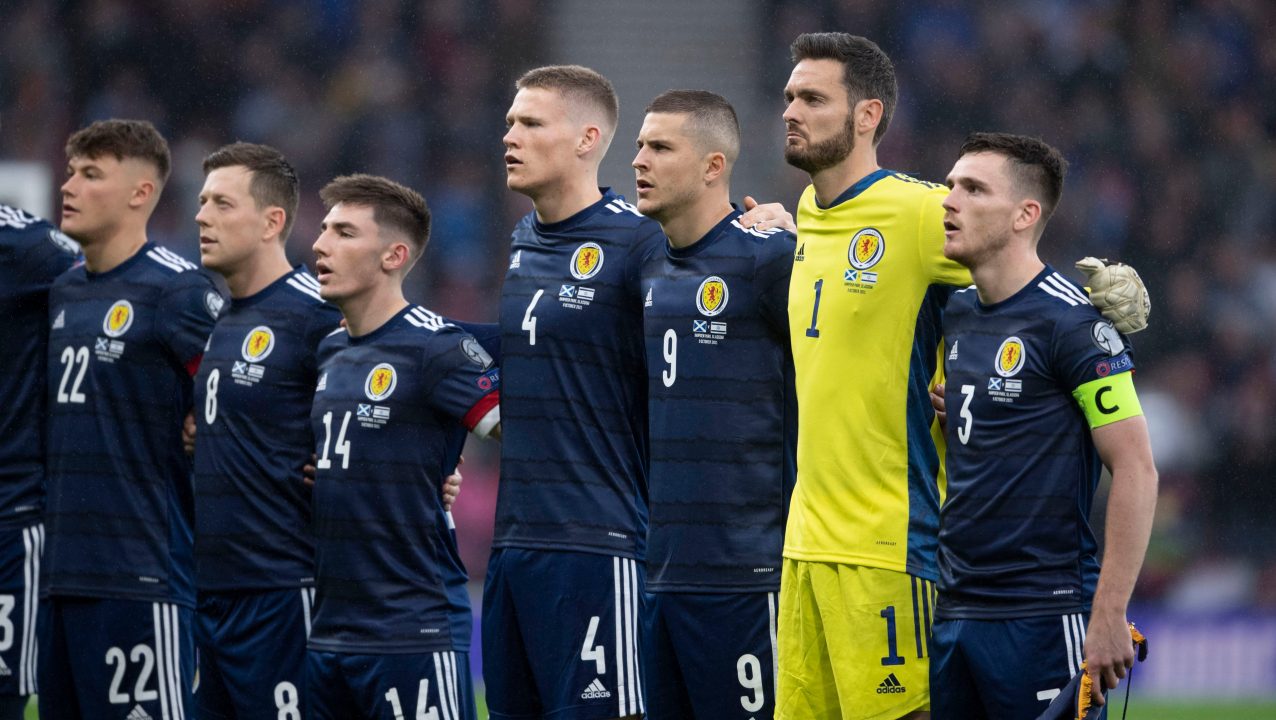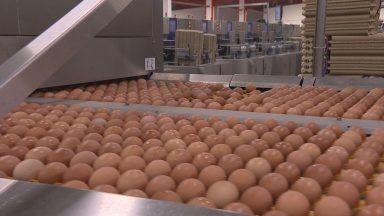Scotland will learn on Thursday who they will face in the latest edition of UEFA’s Nations League.
The competition, which provided Scotland’s route to Euro 2020, is running for the third time with fixtures across the continent next June and September, with the elite sides playing the finals in 2023.
With the competition once again providing a route into the European Championships, Scotland will be looking for a good draw to enhance their chances of being in Germany for Euro 2024.
Scotland won promotion from their group in the first edition of the Nations League, and finished second in their group last time out, meaning they will be in League B once again.
Steve Clarke’s side are in the second of four seeding pots for the group, meaning they are guaranteed to meet a team that has been relegated from the top level, a national team that’s won promotion from League C, and another side that like them maintained their level in the last tournament.
Who could Scotland draw?
The top seeds in League B are Ukraine, Sweden, Bosnia and Herzegovina, and Iceland.
By the time the Nations League comes around, Scotland and Ukraine will already have met in the World Cup play-off semi-final and Clarke and his player will know all about a side that drew six and won two of their World Cup qualifiers.
Sweden are also in the World Cup play-offs, having finished behind Sweden in their group but beating Greece to the runners-up spot. Ranked as the 12th best team in Europe right now, and 18th in the world, they are the team most will want to avoid.
Bosnia and Herzegovina may be in the top pot but are ranked 61st in the world, 23 places below Scotland. Two years ago the Dragons were a place ahead of Scotland in 49th but a Nations League campaign saw no wins in six games, and a World Cup qualifying group brought just seven points from a possible 24.
Iceland are another top seed that had a miserable World Cup qualifying run, finishing fifth out of six in their section. Off the field, the entire FA hierarchy resigned earlier after being accused of covering up a sexual abuse scandal involving members of the national team squad.
 SNS Group
SNS GroupScotland’s potential pot three opponents are Israel, Romania, Serbia and Republic of Ireland.
Seven games against Israel in three years make them familiar opponents and there’s been little to separate them from Scotland, though Clarke’s side have come out on top when it matters.
Romania, who count Rangers attacker Ianis Hagi among their talents, fell short in the World Cup, finishing just a point behind North Macedonia in the fight for a play-off spot in a group dominated by Germany.
Drawing Serbia would bring back happy memories of David Marshall’s penalty shoot-out heroics to put Scotland in the Euros, and the team would be tough opponents again. Ranked 29th in the world, they beat Portugal in Lisbon in their final World Cup qualifier to seal a place at Qatar 2022 and simultaneously dumping Cristiano Ronaldo and company into the play-offs when they looked on course to qualify automatically.
Republic of Ireland would make for an easy trip for the Tartan Army and the team has had mixed results over the last year under Stephen Kenny.
The bottom pot of seeds are Slovenia, Montenegro, Albania and Armenia, with all four unsurprisingly below Scotland in the world rankings.
Slovenia’s promotion to League B came after they beat Kosovo, Moldova and Greece in the last competition but their World Cup qualifying did not bring much more success, with the team comfortably ahead of Cyprus and Malta but well behind group winners Croatia and runners-up Russia.
Albania were beaten by Scotland home and away in the first Nations League and find themselves 66th in the world rankings. Defeated 5-0 by England last month before a 1-0 home win to Andorra, their ambitions are likely to be avoiding the drop back to League C.
Armenia may set their sights higher. Iceland and Romania were both beaten in World Cup qualifying, but the side also suffered heavy defeats to Germany and North Macedonia. Three wins and three draws marks out the team’s threat but 20 goals conceded in ten games identifies where the team struggles.
When are the games?
UEFA have dates in the diary for all matches and split them across two international breaks. Four games will be played in one short spell in June, with the remaining two matchdays in late September.
The four group winners in League A will progress to the finals in June 2023. The group winners from the other three leagues will be promoted for the 2024/25 season. Teams finishing fourth in the groups in Leagues A and B will be relegated.
Follow STV News on WhatsApp
Scan the QR code on your mobile device for all the latest news from around the country


 SNS Group
SNS Group




















